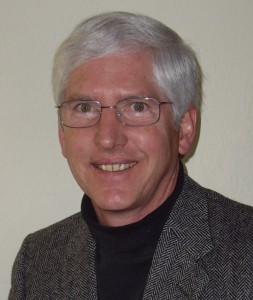Transitions, Fast and Slow
 The election of Donald Trump was a shock — even for many of his supporters and staff. But our disbelief now has to deal with new realities. In just over a week, Trump’s transition team released names for several key positions in his pending administration. Many of those picks are quite controversial.
The election of Donald Trump was a shock — even for many of his supporters and staff. But our disbelief now has to deal with new realities. In just over a week, Trump’s transition team released names for several key positions in his pending administration. Many of those picks are quite controversial.
As I indicated previously, there is much to fear if, as expected, Trump moves quickly to implement key parts of his agenda. On many fronts, those of us who disagree with his policies of exclusion, extraction and exploitation will need to work hard and strategically to blunt or divert some of those initiatives.
There is a bit of good news, though. Political transitions are not instantaneous. Drawing on a familiar metaphor, it is like changing the course of an aircraft carrier at sea. Under the best of conditions, it is a slow process, and strong winds can make it even more difficult.
As we begin to sort out what the Trump administration can do quickly, and what will take more time, we can back off on some of our anxiety, and we can be more focused in developing effective action plans.
+ + + + +
The rejection of the Keystone XL pipeline permit was a big win in the struggle to keep fossil fuels in the ground. Trump can quickly reverse that decision, and he could green-light the final construction permits for the Dakota Access pipeline. As I have mentioned, this shift in presidential use of authority will require a shift in strategy for pipeline opponents. The fight may now require an emphasis on state-level permits, legal challenges, and pressure on the banks that fund pipeline construction.
Not all federal policies can be changed quickly. Interior Secretary Sally Jewell, speaking in Denver recently, voiced confidence that compromises about locations for oil and gas drilling in Colorado “will stick” and that the change of administration “shall make no difference.” The Denver Post reported her belief that “a process involving parties on all sides in forging landscape-scale plans will endure.”
In an new announcement, the Obama administration is blocking new oil and gas drilling in the Arctic Ocean. The Associated Press noted that this blueprint for drilling from 2017 to 2022 can be rewritten by President-elect Donald Trump, but it is a process that could take months or years.
A panel of climate experts that I heard shared the mixed and somewhat uncertain prospects of the transition. Trump — who apparently does not understand or accept the reality and urgency of the climate crisis — has vowed to withdraw from the Paris climate agreement. But that withdrawal, according to the terms of the agreement, takes four years. His administration, of course, can ignore the terms of the agreement, but there are international repercussions in doing so. There is also domestic pressure to stick with Paris, including from a number of major US corporations. The campaign bluster about rejecting Paris may not turn into decisive action.
For the last several years, renewable energy initiatives have been closely tied to climate action, but that is not the only way to approach the clean energy agenda. There are strong and diverse constituencies who are deeply invested in the spread of wind generation, especially. As one panel member pointed out, the top five US states for renewable energy generation are Texas, California, Oklahoma, Iowa and Kansas. Four out of those five are “red” states, and they will work hard to continue the economic boom of wind power.
Yes, there are very real dangers in the Trump administration’s slate of environmental policies. But the EPA cannot be abolished by executive order, and changes of established federal rules require the full and drawn-out “notice and comment” process. There is time, and a variety of political options, to work on many of these issues.
+ + + + +
We have two more months before the change in our presidential leadership officially takes place. Let’s use that time to be careful in our ethical analysis of what is coming, and in our strategic planning for what to address, and when.
Peter Sawtell is the Executive Director of Eco-Justice Ministries in Denver, Colorado. An extended version of this commentary originally appeared in Eco-Justice Notes. It is reprinted here with Sawtell’s permission.
Related News
Joy, Love, and Climate Action: A Church Draws from Ayana Elizabeth Johnson
At First Congregational Church, UCC, in Colorado Springs, CO, our Climate Justice Leadership...
Read MoreAn ally experiences PRIDE in the CLE
Advocacy and Action for Women's and Gender Justice Local events stir thoughts and...
Read MoreVote for Climate Hope Congregation Toolkit
After having witnessed the wonderful Climate Hope art of UCC children and youth, we are now...
Read More

